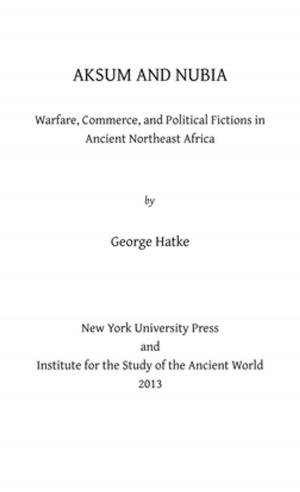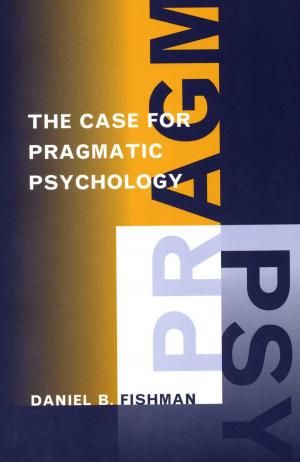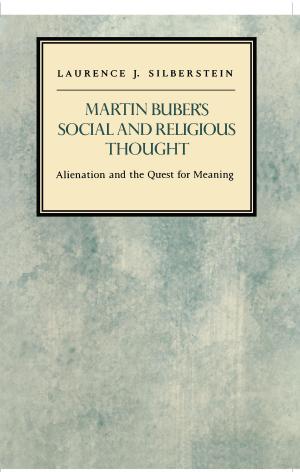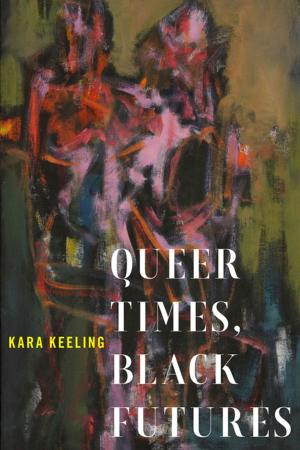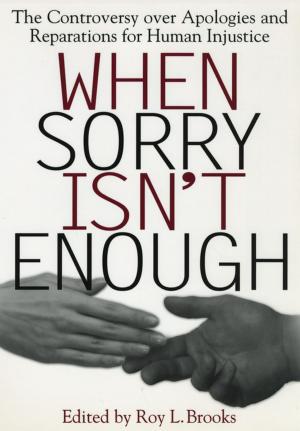Sexuality and War
Literary Masks of the Middle East
Nonfiction, Social & Cultural Studies, Social Science, Gender Studies| Author: | ISBN: | 9780814705216 | |
| Publisher: | NYU Press | Publication: | December 1, 1990 |
| Imprint: | NYU Press | Language: | English |
| Author: | |
| ISBN: | 9780814705216 |
| Publisher: | NYU Press |
| Publication: | December 1, 1990 |
| Imprint: | NYU Press |
| Language: | English |
"A courageous analysis of Arab writers, addressing the connections between masculinity, violence, and nationalism."
-Robin Morgan, Ms..
"Rarely have sexuality and war been treated with such poignancy and historical concreteness .... The force of these often intertwined phenomena endemic to the human condition are considered with incisive and wrenching specificity from within one of the most baneful convergences of sexuality and war in recent history."
-Djelal Kadir, editor, World Literature Today.
"Personal, powerful, passionate, uncensored."
-Fedwa Malti-Douglas, The Journal of Women's History.
A welcome departure from stereotypical nationalist conceptions from which no solutions to the current impasse can possibly emerge."
-Joel Benin, The Middle East Report.
Accad's extraordinary pacifism is deeply compelling to women as it is deeply challenging to men."
-Andrea Dworkin.
A splendid book. Drawing on interviews with Lebanon's village women and her close readings of Lebanon's contemporary novelists, Accad manages to pull back the veil that has shrouded so many conventional nationalisms, revealing their roots in men's effort to control women's sexuality."
-Cynthia Enloe, author of Does Khaki Become You?
"Extraordinary in weaving together literature, feminist theory, and theories of war and violence. Her analysis of the relationships between sexuality, war, and nationalism is stunning in its frankness and importance."
-Berenice A. Carroll, Purdue University.
"It is in the women's writings on the Lebanese civil war that Accad discerns alternative visions that could shape a non- violent reality."
-Miriam Cooke, The Middle East Studies.
This book should remind us how patriarchies can operate similarly in societies we most often define through difference .... [Accad's] forthright, critically respectful, caring treatment of Lebanese lives and worlds resonates as we engage with the longterm repercussions of the Gulf War.
-Marilyn Booth, Women's Review of Books.This compelling book offers an exploration of the indissoluble link between war and sexuality based on over twelve years of interviews by the well-known Lebanese expatriate teacher, critic, and writer.
Evelyne Accad explores what she calls the indissoluble link between war and sexualtiy. She refers to sexuality as the physical and psychological relations of men and women, and examines Middle Eastern customs involved in defining such relationships. She argues that many of the problems faced by societies at war stem from the way male sexuality is viewed and imposed and from the oppression of women within cultural parameters.
For twelve years Professor Accad interviewed women throughout the Middle East about their sexuality and relationships with men. On the basis of these interviews and a close study of six novels written by both men and women on the subject of the Lebanese war, she explores the connection between sexualtity and war and contrasts the reactions of male authors with those of their female counterparts. Each author views war as having roots in sexuality.
Evelyne Accad concludes that "there is a need for a new rapport between men and women, women and women, and men and men: there is a ned for relationshops based on trust, recognition of the other, tenderness, equal sharing, and love devoid of jealousy and possession. Since the personal is the political, changes in relationshops traditionally based on domination, oppression, and power games will inevitably rebound in other spheres of life.
"A courageous analysis of Arab writers, addressing the connections between masculinity, violence, and nationalism."
-Robin Morgan, Ms..
"Rarely have sexuality and war been treated with such poignancy and historical concreteness .... The force of these often intertwined phenomena endemic to the human condition are considered with incisive and wrenching specificity from within one of the most baneful convergences of sexuality and war in recent history."
-Djelal Kadir, editor, World Literature Today.
"Personal, powerful, passionate, uncensored."
-Fedwa Malti-Douglas, The Journal of Women's History.
A welcome departure from stereotypical nationalist conceptions from which no solutions to the current impasse can possibly emerge."
-Joel Benin, The Middle East Report.
Accad's extraordinary pacifism is deeply compelling to women as it is deeply challenging to men."
-Andrea Dworkin.
A splendid book. Drawing on interviews with Lebanon's village women and her close readings of Lebanon's contemporary novelists, Accad manages to pull back the veil that has shrouded so many conventional nationalisms, revealing their roots in men's effort to control women's sexuality."
-Cynthia Enloe, author of Does Khaki Become You?
"Extraordinary in weaving together literature, feminist theory, and theories of war and violence. Her analysis of the relationships between sexuality, war, and nationalism is stunning in its frankness and importance."
-Berenice A. Carroll, Purdue University.
"It is in the women's writings on the Lebanese civil war that Accad discerns alternative visions that could shape a non- violent reality."
-Miriam Cooke, The Middle East Studies.
This book should remind us how patriarchies can operate similarly in societies we most often define through difference .... [Accad's] forthright, critically respectful, caring treatment of Lebanese lives and worlds resonates as we engage with the longterm repercussions of the Gulf War.
-Marilyn Booth, Women's Review of Books.This compelling book offers an exploration of the indissoluble link between war and sexuality based on over twelve years of interviews by the well-known Lebanese expatriate teacher, critic, and writer.
Evelyne Accad explores what she calls the indissoluble link between war and sexualtiy. She refers to sexuality as the physical and psychological relations of men and women, and examines Middle Eastern customs involved in defining such relationships. She argues that many of the problems faced by societies at war stem from the way male sexuality is viewed and imposed and from the oppression of women within cultural parameters.
For twelve years Professor Accad interviewed women throughout the Middle East about their sexuality and relationships with men. On the basis of these interviews and a close study of six novels written by both men and women on the subject of the Lebanese war, she explores the connection between sexualtity and war and contrasts the reactions of male authors with those of their female counterparts. Each author views war as having roots in sexuality.
Evelyne Accad concludes that "there is a need for a new rapport between men and women, women and women, and men and men: there is a ned for relationshops based on trust, recognition of the other, tenderness, equal sharing, and love devoid of jealousy and possession. Since the personal is the political, changes in relationshops traditionally based on domination, oppression, and power games will inevitably rebound in other spheres of life.





